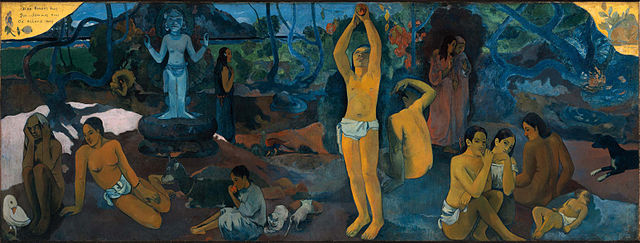
Connecting the Dots
A whiny old man — that is what he calls himself—who is a friend and reader — asked me why all the God stuff. If you are new and are here to read blogs on science fiction, or the paranormal, or just weird stuff, you’re probably wondering why the talk about religion in a science fiction blog. I’ll try to connect the dots.
The Bible is chalked full of extraterrestrial and paranormal encounters. People believe in the Bible but not Ancient Astronauts. How does that work exactly? And what weirder book is there than the Bible? Floods, giants, talking snakes, demons, angels…
As a person who has always been fascinated by science, mythology, and science fiction, I’ve had numerous questions regarding my Christian upbringing and the Bible. My first question came at the age of ten when I heard the story of God asking Abraham to sacrifice his son, Isaac, to prove his absolute loyalty to God. That didn’t set quite right with me. God asking someone to kill another human being? Really?
I know. I know. I’ve heard the arguments. God didn’t intend for Abraham to kill his son. However, Abraham didn’t know that and after I had my first child, I realized how ludicrous that story was and still is.
The Creator — I believe in — would never ask me to sacrifice my child. If God is truly all knowing, He would know what was in Abraham’s heart. So why the test? To cause unnecessary pain and stress to Abraham? I don’t think so.
At the age of twelve, I was required to enroll in confirmation classes before I could take part in communion. My pastor told the class that angels were actually space aliens. He didn’t last long as our congregational pastor. Too bad, I might have learned something. There are indeed references in the Bible that do seem to describe alien encounters. Just skim the Book of Ezekiel if you don’t believe me.
I was taught that men and women were created in God’s image. (Or is the gods’ images?) If this is true, then God has a physical form in order for us to be created in his likeness. Nevertheless, I was taught differently.
With so many contradictions, is there any wonder that science and religion have never merged? On one hand we are dealing with fact and, on the other hand, we are taught to believe in a book that is basically full of myths. Or — as I hinted at in my last blog — perhaps a book that has been poorly translated over the years to the point that it would be unrecognizable to its Creator.
Still, That One Small Word
Still, wars are fought, people are killed over religious beliefs.
In 1897, French artist, Paul Gauguin, introduced his masterpiece (top photo) to the world. It’s title: D’où Venons Nous / Que Sommes Nous / Où Allons Nous, or translated: Where Do We Come From/What Are We/Where Are We Going. These are vast questions. And haven’t we all asked these same questions? (If not out loud, then within.)
By figuring out what we are not, what our Creator is not, and thus discovering what the Bible is not, perhaps we can answer these epic questions one day.

If the Bible wasn’t full of extraterrestrial encounters, then talk about religion would not be relevant in a science fiction blog. Therefore, in my weak attempt to answer some of the questions that have plagued me and contradicted my Christian upbringing, we will spend a little more time asking questions. And with the help of my guest blogger, Ike Fehr, perhaps we might find a few answers.
(Yes, I would have for sure eaten the apple right along with Eve. I mean, duh, who doesn’t want wisdom?)
The Epic of Gilgamesh
Scholars and Ancient Astronaut Theorists often make comparisons between the Bible and The Epic of Gilgamesh (EoG).
The Epic of Gilgamesh, an epic poem dating back to ancient Mesopotamia, is said to be the first great work of literature. The literary history of Gilgamesh begins with five Sumerian poems.
Gilgamesh is a demigod with superhuman strength and is generally seen by scholars as a historical figure, since inscriptions have been found which confirm the existence of other figures associated with him in the epic. Influences of the Sumerian civilization, the oldest known culture, can be seen even today.
There appears in the EoG a flood story very similar to the story we are taught from the Bible (Genesis 6-9). So similar some scholars and theologians believe Moses may have copied the story from the Epic. The EoG predates Genesis.
Scholars date the first reference to the global flood in the EoG to 2100 BC. Whereas Genesis is said to have been written by 1400 BC. Some scholars believe that both stories were generated by an actual global flood.
The flood story in the Epic and the Bible echo each other in the following ways.
- In both the Epic and the Bible, God (or gods in the case of the EoG) sent a flood to control his/their people.
- A hero (Noah in the Bible/Utnapishtim in the EoG) was chosen and told to build an ark.
- The ark was huge enough to house not only humans but specimens of all animals.
- The end of the flood was determined by the hero sending out birds.
- The hero made sacrifices to God/the gods and was blessed.
Researching the Epic brings to light even more questions. Is this the same story? If so, how accurate is the Epic since it appears to be the original source. And why is the story included in the Bible? To make the point that God is almighty? That he can destroy us if we anger him?
Or was it a way to scare humans into submission?
Or is God perhaps different than what we’ve been taught to believe. Does he anger? Does he show other human emotions?
If so, was God an Ancient Astronaut instead some elusive and ethereal figure head?
God and His Human-like Emotions by Ike Fehr
(IkeNote: In these posts Bible quotations are printed in red. Quotations from other writers are in blue, and my own quotes and paraphrases are in pink.)
If you have been in church, even a few times, you may have heard God referred to in words something like this, “the eternal unchanging deity.” I challenge that statement.
Is He sorry for what He has done?
Humankind is emotionally in the image of God. People make mistakes and express sorrow for their errors. People can be imposed upon by the pleadings of others. Humans can enjoy pleasure and experience hate. Jehovah is capable of all these emotions, to mention only a few. For example, And the Lord was sorry that he had made man on the earth, and it grieved him to his heart (Gen. 6:6).
Previously, mention was made about the gods discussing the feasibility of creating man on the earth, and that they decided to do so. Now we find that Jehovah was sorry that he had anything to do with the creation of man. Is the Bible speaking of a God that makes mistakes? Is it speaking of gods that decide to undo what they have done and wipe out most of the human race because of the Creator’s unexpected disappointment with it?
From the Epic of Gilgamesh comes this bit of interesting prose:
The gods were frightened by the flood, they retreated, ascending to the heaven of Anu … Ishtar shrieked … how could I say evil things in the Assembly of the Gods, ordering a catastrophe to destroy my people! The gods — those of the Anunnaki —were weeping with her, the gods humbly sat weeping, sobbing with grief.
(ProbeNote: The Anunnaki are mentioned in The Epic of Gilgamesh and some scholars believe that the Nephilim in the Bible are the Anunnaki.)
Does God Get Jealous?
Jealousy is not a stranger to humankind. Additionally, it is also an emotion that the Lord has. I the Lord your God am a jealous God, visiting the iniquity of the Fathers upon the children (Ex. 20:5). Is this the picture of an omnipotent, all-knowing, all-loving God? No. It shows a God who is subject to emotional variations.
It is the God of the Hebrews that we read about in the Old Testament. He is a jealous God; in fact, his “nickname” is, Jealous. For you shall worship no other god, for the Lord, whose name is Jealous, is a jealous God (Ex. 34:14), He will not share his glory with any other. This, incidentally, is a redundant sentiment, if there are no other deities vying for glory from mortals.
Does God Get Angry?
He, the Lord of the Jews, is a God who, in anger, disperses his people to other nations as punishment for sins committed. Eventually, when His anger is abated, brings them home again. These definitely are not pictures of an omnipotent and unchanging God.
In the Bible is recorded an incident in which Balaam went, with the princes of Moab, to curse the children of Israel, and Then God’s anger was aroused because he went (Num. 22:22). Is the Lord’s anger short fused?
According to the standards that the church has imposed on the ‘all-loving’ and ‘all-knowing’ God, it seems improbable that He should get himself into a situation in which he must compromise his divine characteristics. Characteristics such as love and knowledge.
Dots Connecting
It seems so much more in agreement with the Bible to think of God as being a superhuman who came to earth as an astronaut. He seems to be a God who is physical, temperamental, and with mental limitations. This theory would certainly clear up many contradictions that traditional religion has taught us.
Did the decision of whether or not the Jews entered the promised land depend on His emotional variations? It sounds as if it might have. He said, So I swore in My wrath, ‘They shall not enter My rest (Heb. 3:11). Conversely, we also hear Him say, if My people who are called by My name will humble themselves, and pray and seek My face, and turn from their wicked ways, then I will hear from heaven, and will forgive their sin and heal their land (2 Chron. 7:14).
Can our words or our attitudes in fact change the mind of the eternal, foreordained plans of an Almighty God? This is not a picture of the almighty — one who creates the sustaining force of the universe. Rather it is a picture of a father’s relationship with his child. This shows us that when the gods created us, they made us physically as well as emotionally in their image.
A God who repents for what He has done; a God who is jealous of other gods; and one who, in anger, changes His mind about plans He had for His people does not sound like an eternal, unchanging deity. This is the God that we read about in the Bible.
ProbeFiling
As much as the human race has advanced, we are still perplexed with the universal questions: Where Do We Come From? What Are We? Where Are We Going?
I want to believe as we begin to challenge concepts forced on us by cultures and by societies as children; perhaps, we will come closer to the answers for which we seek.
If we dare peel back the intricately woven threads of our existence, and open our minds to the possibilities instead of just accepting what we’ve been taught, we might uncover the answers to our questions.
Who can fault us for guesses? No one. What we can be faulted for is not progressing far enough in our existence to question and then seek.

Why was Eve told not to eat fruit from the Tree of Knowledge? If we accept the Bible literally, then the answer evades us. If we open our minds, and ask what does this mean symbolically, we might think that eating from the Tree of Knowledge meant that one day mankind would gain the ability to kill each other with weapons of mass destruction or biological warfare or a deadly virus. Maybe this is why Eve was told not to eat the apple.
Are we merely the byproducts of evolution, the sons and daughters of the sky gods, or the creation of one almighty being?
I’d love to hear your thoughts. Are there any stories in the Bible that you question?
A quote from Mark Twain on Adam and Eve (humans in general):
Adam was but human — this explains it all. He did not want the apple for the apple’s sake, he wanted it only because it was forbidden. The mistake was in not forbidding the serpent; then he would have eaten the serpent. —Mark Twain, Pudd’nhead Wilson, 1894.
About Ike

My guest blogger graduated from Columbia College in Vancouver, B.C. and also graduated from Columbia Bible College after three years of intensive Bible and pastoral training. He has devoted over forty years to biblical research in hopes of discovering answers.
Ike starts his blogspot, which he calls Spaceship Theology, with an intriguing statement: Considering all the advancements in the various fields of study in the last few hundred years, it is interesting that theologians are not willing to look at the Bible again and read there what it really says.
The Probe’s Mission Statement
The Probe is a blog devoted to the investigative reporting of the unexplainable and to finding the truth in occurrences that resemble science fiction.

- Coghlan’s Traveling Coffin Urban Legend - April 4, 2024
- Richmond Vampire Urban Legend - March 7, 2024
- Lick Lick Urban Legend - February 8, 2024
